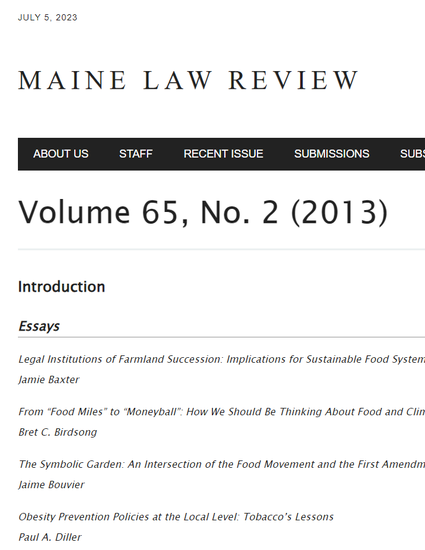
- Food Law,
- Land Tenure,
- Sustainable Food Systems,
- Property Rights,
- Succession,
- Modern Farmland
The legal institutions relevant to farmland succession — defined as the transfer of property in and control over farmland — are increasingly important determinants of sustainable environmental outcomes on modern farms. The history of farmland succession has been written, by and large, through extra-legal processes of transfer and inheritance between generations of close family relations. This familiar “family farm” model, however, is rapidly being replaced by succession arrangements between non-relatives, often strangers, with entrant farmers from non-agricultural backgrounds. As a growing number of current farmers retire and seek creative ways to transfer control and ownership of their farms, the availability and content of property arrangements on farmlands acquire a new significance. The resulting formalization of farmland succession places greater demands on policy makers to craft farmland tenure options and supporting institutions that are suitable to a wider diversity of needs, particularly among small farmers, and to consider the impacts of these arrangements for sustainable food systems over the long term.
